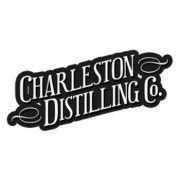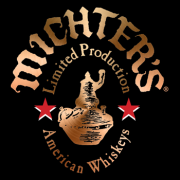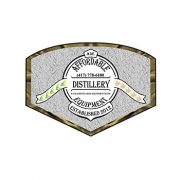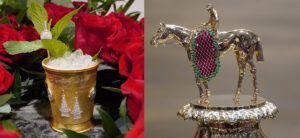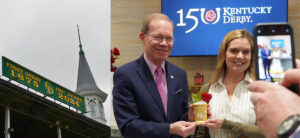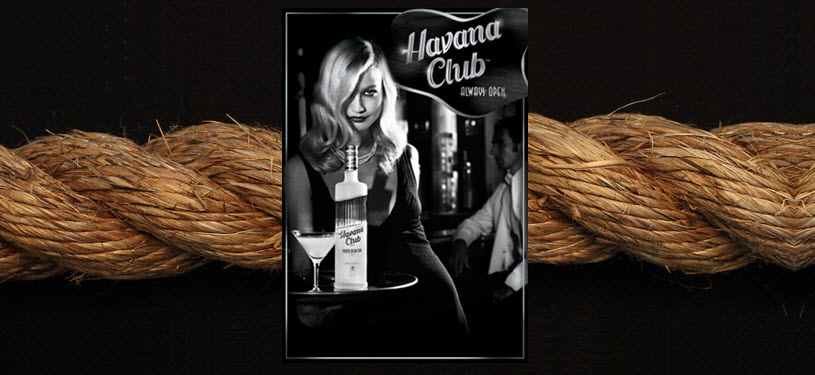
The Bacardi vs. Pernod Ricard battle for the Havana Club Rum brand rights in the U.S. took center stage this week during a U.S. House of Representatives Judiciary Subcommittee meeting. The meeting by the Courts, Intellectual Property, and the Internet Congressional hearing addressed “Resolving Issues with Confiscated Property in Cuba, Havana Club Rum and Other Property.”
Bacardi acquired the rights in the U.S. to Havana Club rum from the Arechabala family who founded the company in Cuba in 1878, created the Havana Club brand in 1934 and ran the business until it was forcibly confiscated by the Castro regime in 1960. Pernod Ricard acquired the rights to the Havana Club brand throughout the rest of the world through a joint venture with the Cuban government.
Stay Informed: Sign up here for the Distillery Trail free email newsletter and be the first to get all the latest news, trends, job listings and events in your inbox.
The Havana Club brand rights in the U.S. were stripped from Bacardi on January 11, 2016 when the U.S. Department of the Treasury unexpectedly granted the trademark registration of Havana Club to the Cuban government. Within 48 hours, after years of inactivity, the PTO approved the renewal of the registration of a trademark for a brand which was confiscated without compensation from its founders into the hands of the Cuban government – even though Congress has prohibited U.S. courts from recognizing it.

“These decisions are unprecedented and shocking because they undo decades of United States law and policy by approving Cuba’s efforts to capitalize on, and traffic, in stolen goods.” Mr. Wilson stated as he opened his testimony.
As part of continued efforts to defend the legitimacy of the Bacardi rights and ownership of Havana Club rum, Mr. Wilson testified to a history of fraud committed by the Cuban government in obtaining and renewing the Havana Club registration. Mr. Wilson also explained the timeline of events leading up to the January 2016 decisions of OFAC and the PTO which Bacardi contends were done in violation of the language and spirit of U.S. law – and at a speed which is likely unmatched in the chronicles of administrative law.
“Courts in the United States have steadfastly held that foreign confiscations will not be given effect because such confiscations are ‘shocking to our sense of justice,’” added Mr. Wilson.
The Bacardi testimony also reminded the House Judiciary Committee that the Cuban Assets Control Regulations (“CACR”), which implement the trade embargo against Cuba, prohibit all transactions involving property, including trademarks, in which Cuba, or any national thereof, has any interest of any nature whatsoever, direct or indirect, except as specifically authorized by the Secretary of the Treasury. The CACR provided a general license for trademark registration and renewal by Cuban nationals. However, this allowed a loophole for the Cuban government to register and renew trademark registrations for marks created or owned by private businesses in Cuba which were confiscated by the Castro government. Congress took action to close this loophole by passing Section 211 of the Omnibus Appropriations Act of 1998 which ensures that the general license in the CACR cannot be used by foreign states to register marks associated with businesses that were confiscated without compensation. Section 211 has been critical to the efforts of the Arechabala’s, Bacardi, and other companies, to ensure that Cuba does not profit off of stolen property, especially through U.S. trademark registrations and renewals. Section 211 rescinds the general license for trademark registration and renewal of marks that were used in connection with a confiscated business and prohibits courts from recognizing Cuba’s rights in confiscated property.
The purpose of Section 211 is to: Deny giving effect to Cuba’s claims to illegally confiscated property in the United States.
House Judiciary Committee Chairman Bob Goodlatte (R-Va.) and Courts, Intellectual Property, and the Internet Subcommittee Chairman Darrell Issa (R-Calif.) issued the following statements on Thursday’s hearing.
House Judiciary Committee Chairman Bob Goodlatte (R-Va.) issued this statement: “This week the IP subcommittee will examine the issue of confiscated property in Cuba. The Cuban government, led by Fidel Castro, has stolen billions in property, including homes and businesses, owned by Americans and American investors. Perhaps the most recognized case is that of the Arechabala Family liquor business, which had its trademark for Havana Club Rum seized by the Cuban government and then licensed to another company against the family’s wishes. As the Obama Administration looks to improve relations with Cuba, important questions remain about how these claims will be satisfied.”
Internet Subcommittee Chairman Darrell Issa (R-Calif.) stated: “Integrity in our trademark system is fundamental to property rights in the United States. The decision to grant the Havana Club trademark to the Cuban government decades after it was effectively stolen during the revolution is an act that deserves scrutiny by the Committee.”
Mr. Wilson ended his testimony by stating, “The Cuban government seized Jose Arechabala S.A. (“JASA”), a viable business with a well-known mark, and, without any interruption in the business, began making and selling rum under the Havana Club brand. What occurred was a forcible confiscation at gunpoint. Pernod Ricard, knowing all of this sordid history, chose to invest with Cuba in this stolen brand. For decades, the United States has prevented Cuba and its business partners from profiting off of the United States Havana Club registration – it should continue to do so. Well-settled United States law and policy, as reaffirmed by Section 211, ensures that the United States will always protect the creators and owners of intellectual property, like JASA and Bacardi, and not reward an authoritarian state, like Cuba, which uses force of arms to steal such property and enrich itself at the expense of its citizens. The sudden and unexplained decision of OFAC and the PTO to permit Cuba’s renewal of the Havana Club mark flies in the face of these legal and policy principles.”
Bacardi plans to continue to pursue all the necessary legal and other actions regarding its rights and ownership of Havana Club rum. As the company has maintained all along, Bacardi is the legitimate owner of the brand.
Please support Distillery Trail. Like us on Facebook and Follow us on Twitter. Thank you!
Bacardi Havana Club Rum



